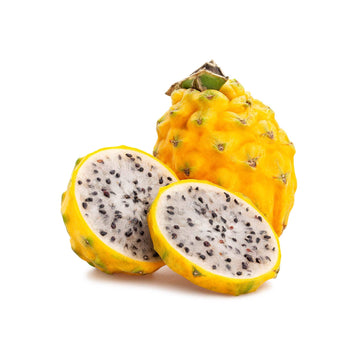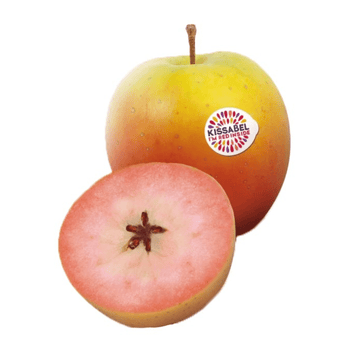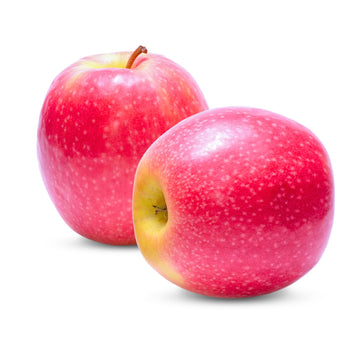All About Thyroid Health
The thyroid, a small butterfly-shaped gland located at the base of the neck, plays a monumental role in regulating numerous bodily functions. Despite its modest size, this gland is a powerhouse, producing hormones like triiodothyronine (T3) and thyroxine (T4) that influence metabolism, energy levels, body temperature, heart rate, and even mood. These hormones act like the body’s thermostat, ensuring that processes like growth, cell repair, and digestion run smoothly. When the thyroid is out of balance, it can lead to a cascade of health issues, making thyroid health a critical aspect of overall well-being. In this blog post, we’ll explore the thyroid’s role, who needs to pay attention to it, signs of an unhealthy thyroid, how diet—particularly fruits—can support thyroid function, and highlight ten exotic fruits that stand out for their thyroid-boosting benefits.
Understanding the Thyroid and Its Impact on Health
The thyroid gland produces hormones that regulate metabolism—the process by which your body converts food into energy. These hormones control how fast or slow your organs work, affecting everything from your heart rate to how quickly you burn calories. The thyroid also influences brain function, muscle strength, and bone health. Two primary conditions arise when the thyroid malfunctions: hypothyroidism (underactive thyroid), where insufficient hormones lead to a sluggish metabolism, and hyperthyroidism (overactive thyroid), where excess hormones speed up bodily processes. Both conditions can disrupt energy levels, weight management, and even mental health.
Thyroid health is interconnected with other systems, including the immune system, particularly in autoimmune conditions like Hashimoto’s thyroiditis (causing hypothyroidism) or Graves’ disease (causing hyperthyroidism). These disorders occur when the immune system mistakenly attacks the thyroid, impairing its function. Maintaining optimal thyroid health is essential for sustaining energy, managing weight, and supporting overall vitality.
Who Should Be Conscious of Their Thyroid Health?
Thyroid disorders affect approximately 1 in 20 people in the UK, equating to around 3.4 million individuals, with many potentially undiagnosed. Women are 5-8 times more likely to develop thyroid issues than men, particularly during life stages like pregnancy, menopause, or postpartum periods, when hormonal fluctuations are common. Individuals with a family history of thyroid disease, autoimmune conditions, or iodine deficiency are at higher risk. Those with celiac disease or other autoimmune disorders should also be vigilant, as these conditions often coexist with thyroid issues. Additionally, people over 60, those with chronic stress, or individuals exposed to environmental toxins (like heavy metals) should monitor their thyroid health closely.
Signs of an Unhealthy Thyroid
Recognising the signs of thyroid dysfunction is crucial for early intervention. Symptoms of hypothyroidism include:
-
Fatigue and low energy
-
Weight gain or difficulty losing weight
-
Constipation
-
Dry skin and hair loss
-
Feeling cold frequently
-
Brain fog or depression
Conversely, hyperthyroidism may present with:
-
Unexplained weight loss
-
Rapid heartbeat or palpitations
-
Anxiety or irritability
-
Increased sweating or heat intolerance
-
Tremors or muscle weakness
-
Bulging eyes (in Graves’ disease)
Other signs, like neck swelling (goiter) or irregular menstrual cycles, may indicate thyroid issues. If you experience these symptoms, consult a healthcare provider for tests like TSH (thyroid-stimulating hormone), T3, and T4 levels to assess thyroid function.
How Diet Affects Thyroid Health
Diet plays a pivotal role in supporting thyroid function, as the gland relies on specific nutrients to produce and regulate hormones. Key nutrients include:
-
Iodine: Essential for thyroid hormone production, found in seaweed and dairy but must be balanced to avoid excess (harmful for hyperthyroidism) or deficiency (linked to hypothyroidism).
-
Selenium: Supports hormone metabolism and protects the thyroid from oxidative stress. It’s concentrated in the thyroid more than any other organ.
-
Zinc: Aids in thyroid hormone synthesis and conversion.
-
Vitamin C: Enhances iodine absorption and boosts immunity, which is vital for autoimmune thyroid conditions.
-
Antioxidants: Reduce inflammation and oxidative stress, which can damage thyroid cells.
-
Fibre: Supports digestion and weight management, addressing common hypothyroidism symptoms like constipation.
Fruits are a cornerstone of a thyroid-friendly diet, providing antioxidants, fiber, vitamins, and minerals while being low in goitrogens—substances in some foods (like cruciferous vegetables) that may interfere with iodine uptake when consumed in excess. However, moderation is key, as some fruits contain natural sugars or goitrogens that could impact thyroid health if overconsumed, particularly for those with specific conditions like Hashimoto’s or iodine deficiency. A balanced diet with a variety of fruits, alongside lean proteins, whole grains, and healthy fats, optimises thyroid function and overall wellness. Always consult a healthcare provider before making significant dietary changes, especially if you’re on thyroid medication, as certain foods can affect absorption.
10 Exotic Fruits for Thyroid Health
Below, we explore ten exotic fruits that offer unique benefits for thyroid health due to their nutrient profiles. Each fruit’s origin, flavour, texture, and specific thyroid-supporting properties are detailed, along with additional health benefits.
1. Dragon Fruit (Pitahaya)
Origin: Native to Central and South America, now widely grown in Southeast Asia and Australia.
Flavour and Texture: Mildly sweet with a subtle kiwi-like flavour, dragon fruit has a soft, juicy flesh dotted with tiny edible seeds, encased in a vibrant pink or yellow skin with green scales.
Why It’s Good for Thyroid Health: Dragon fruit is rich in vitamin C, which enhances iodine absorption and supports immune function, crucial for those with autoimmune thyroid conditions like Hashimoto’s. Its antioxidants, including betalains, reduce oxidative stress, protecting thyroid cells from damage. The fruit’s high fibre content aids digestion, helping alleviate constipation, a common hypothyroidism symptom.
Other Health Benefits: Supports gut health with prebiotics, promotes skin health, and may help regulate blood sugar levels due to its low glycemic index.
2. Mangosteen
Origin: Native to Southeast Asia, particularly Malaysia and Indonesia.
Flavour and Texture: Mangosteen offers a sweet-tart flavour, reminiscent of a blend between citrus and peach, with a soft, juicy, segmented white flesh inside a thick purple rind.
Why It’s Good for Thyroid Health: Mangosteen is packed with xanthones, potent antioxidants that combat inflammation and oxidative stress, which can exacerbate thyroid disorders. Its vitamin C content supports iodine uptake, while its fibre aids digestion and weight management, key for people with hypothyroidism.
Other Health Benefits: Boosts immunity, supports heart health, and may have anti-cancer properties due to its antioxidant profile.
3. Guava
Origin: Native to Central and South America, now cultivated in tropical regions worldwide.
Flavour and Texture: Guava has a sweet, slightly tangy flavour with a grainy yet juicy texture, often eaten with its edible seeds and skin.
Why It’s Good for Thyroid Health: Guava is a vitamin C powerhouse, enhancing iodine absorption and supporting immune health, which benefits those with autoimmune thyroid issues. Its high fibre content promotes digestive health, and its low goitrogen content makes it a safe choice for thyroid patients.
Other Health Benefits: Improves blood sugar control, supports heart health with potassium, and enhances skin health due to its vitamin C and antioxidants.
4. Amla (Indian Gooseberry)
Origin: Native to India and parts of Southeast Asia.
Flavour and Texture: Amla is tart and sour, with a firm, juicy texture, often consumed fresh, dried, or in juice form.
Why It’s Good for Thyroid Health: Amla’s exceptionally high vitamin C content supports iodine absorption and immune function, while its flavonoids and polyphenols reduce inflammation, benefiting thyroid health in autoimmune conditions. Its antioxidants protect thyroid cells from oxidative damage.
Other Health Benefits: Enhances liver function, supports hair and skin health, and may lower cholesterol levels.
5. Passion Fruit
Origin: Native to South America, widely grown in tropical regions like Brazil and Australia.
Flavour and Texture: Passion fruit has a tangy, sweet-sour flavour with a juicy, seed-filled centre encased in a tough outer rind.
Why It’s Good for Thyroid Health: Rich in vitamin C and antioxidants, passion fruit supports immune health and reduces inflammation, aiding those with autoimmune thyroid disorders. Its fibre content supports digestion, and its low goitrogen profile makes it thyroid-friendly.
Other Health Benefits: Promotes heart health with potassium, supports eye health with vitamin A, and aids in stress reduction due to magnesium.
6. Starfruit (Carambola)
Origin: Native to Southeast Asia, particularly Malaysia and Indonesia.
Flavour and Texture: Starfruit offers a crisp, juicy texture with a sweet-tart flavour, resembling a mix of apple and citrus, and can be sliced into star-shaped pieces.
Why It’s Good for Thyroid Health: Starfruit is high in vitamin C, aiding iodine absorption, and contains antioxidants that reduce oxidative stress on the thyroid. Its fibre supports digestive health, crucial for hypothyroidism management.
Other Health Benefits: Supports hydration due to high water content, promotes kidney health, and may help regulate blood sugar.
7. Lychee
Origin: Native to China, now grown in tropical regions like India and Thailand.
Flavour and Texture: Lychee has a sweet, floral flavour with a juicy, grape-like texture, encased in a rough, red-pink skin.
Why It’s Good for Thyroid Health: Lychee provides vitamin C for iodine absorption and immune support, while its antioxidants, like polyphenols, protect thyroid cells from damage. Its moderate fibre content aids digestion.
Other Health Benefits: Boosts skin health, supports hydration, and may have anti-inflammatory properties.
8. Soursop (Graviola)
Origin: Native to the Caribbean and Central America, also grown in tropical regions.
Flavour and Texture: Soursop has a creamy, custard-like texture with a sweet-tart flavour, blending pineapple and citrus notes.
Why It’s Good for Thyroid Health: Soursop is rich in vitamin C and antioxidants, reducing inflammation and supporting immune health, which is vital for autoimmune thyroid conditions. Its fibre aids digestion and weight management.
Other Health Benefits: May have anti-cancer properties, supports immune function, and promotes gut health.
9. Rambutan
Origin: Native to Southeast Asia, particularly Malaysia and Indonesia.
Flavour and Texture: Rambutan is sweet and juicy, similar to lychee, with a soft, fleshy interior inside a hairy, red-green skin.
Why It’s Good for Thyroid Health: Rambutan’s vitamin C content enhances iodine uptake, while its antioxidants reduce oxidative stress on the thyroid. Its fibre supports digestion, helping with hypothyroidism-related constipation.
Other Health Benefits: Supports skin health, boosts immunity, and provides hydration.
10. Longan
Origin: Native to China and Southeast Asia.
Flavour and Texture: Longan has a sweet, musky flavour with a juicy, translucent flesh, similar to lychee, encased in a thin, brown shell.
Why It’s Good for Thyroid Health: Longan is rich in vitamin C, supporting iodine absorption and immune health. Its antioxidants protect thyroid cells, and its low goitrogen content makes it safe for thyroid patients.
Other Health Benefits: Promotes relaxation due to its calming properties, supports heart health, and aids digestion.
Conclusion
The thyroid gland, though small, is a critical regulator of metabolism, energy, and overall health. Maintaining its function is essential for everyone, but particularly for women, those with autoimmune conditions, or individuals with a family history of thyroid issues. Recognising signs of thyroid dysfunction—such as fatigue, weight changes, or mood disturbances—can prompt timely action. Diet, especially the inclusion of nutrient-rich fruits, plays a significant role in supporting thyroid health by providing essential vitamins, minerals, and antioxidants. The ten exotic fruits highlighted—dragon fruit, mangosteen, guava, amla, passion fruit, starfruit, lychee, soursop, rambutan, and longan—stand out for their high vitamin C, antioxidant, and fibre content, which enhance iodine absorption, reduce inflammation, and support digestion. These fruits not only benefit the thyroid but also promote overall wellness, from heart health to immunity.
Incorporating these exotic fruits into a balanced diet, alongside other thyroid-friendly foods like lean proteins and whole grains, can optimise thyroid function and alleviate symptoms. However, moderation is key, and individuals with specific thyroid conditions should consult a healthcare provider or dietitian to tailor their diet, especially if taking thyroid medication. By making informed dietary choices, you can nourish your thyroid and enhance your vitality, one delicious fruit at a time.


















